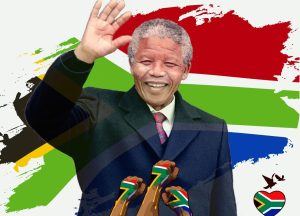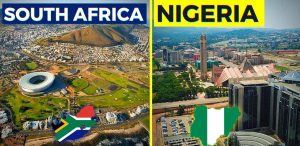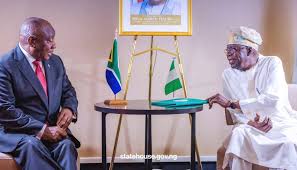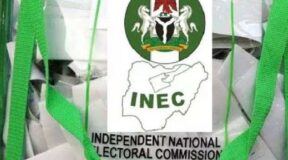Nelson Mandela Day
OpenLife Nigeria reports that on the occasion of this July 18, the birth date of Nelson Mandela, officially declared by the United Nations in November 2009 as Nelson Mandela International Day, in honour of the former South Africa President, the Consul General of the Republic of South Africa in Lagos, Nigeria, Professor Bobby J. Moroe, has disclosed that visa applicants in Nigeria can now obtain their travel visas within a week.
Professor Bobby Moroe made the disclosure at the July Breakfast meeting organized by Nigeria-South African Chamber of Commerce, NSACC, in Lagos.
In a keynote address at the meeting sponsored by South African Airways, Professor Moroe stated that the concerns for improved bilateral relationship between South Africa and Nigeria have given birth to an improved visa approval for applicants in Nigeria within a week.
Moroe, who spoke on a theme “Diplomatic Relations between South Africa and Nigeria: Prospects and Challenges,” explained that “Africa remains the second-fastest growing region globally, with 40 countries set to achieve post higher growth rates relative to 2023 levels.”
The Consul General therefore called for “effective policy measures that will yield economic growth in Africa.”
Professor Bobby J. Moroe’s presentation is reproduced below unedited
Programme Director;
The Honorable Chairman, NSACC, Mr Giwa-Osagie.
The Honorable Vice-Chairman, NSACC, Mr Olomola.
Distinguished former Chairman, Mr Phillips.
Esteemed Directors of the NSACC:
Dr Jidenma, Mr Okigbo, Dr Sogunle, Mr Ehimiaghe,
Mr Omonkhogbe. (My sister Kemi)
The Executive Secretary of NSACC, Mr Ejimofor.
Honorable Prof. Osaghae, DG, NIIA
Members of the diplomatic corps here present.
Captains of Industry – SA and Nigeria.
Fellow South Africans and friends of South Africa here today.
My dear colleagues who always make look good.
Distinguished guests.
Members of the 4th estate.
Ladies and gentlemen.
Good morning, to one and all!
This morning, I am joined by my wife, Lebohang Moroe.
At the outset, let me take this opportunity to appreciate the South African Airways for creating the much-needed initiative in pursuit of solidifying and reaffirming relations between South African and Nigeria.
Our gratitude goes to the Nigeria-South Africa Chamber of Commerce for hosting this event, providing us with a safe space to engage, and contribute to the ongoing conversation about the expansion of relations between South Africa and Nigeria.
“The ones who know, fly SAA”
This year, the South African Airways marks 90 years since its establishment in 1934, undergoing transformation and adherence to the country’s diversity.
Since then, our national carrier has been connecting South Africa to the world, promoting more connections to African destinations and facilitating growth and prosperity in the continent.
Acquired from a private company, Union Airways in 1934, SAA has grown in leaps and bounds to become a flagbearer on a quest to provide ease of movement in Africa and the world.

As this pride of our nation celebrates 90, I would like all of us to join me in recognizing this milestone, and express encouragement for the company to grow from strength to strength towards a more successful future.
This year we are also celebrating two significant milestones in our history as a country – a history that promotes an element of UBUNTU/BOTHO/HUMANITY (You are, because I am) which fundamentally forms the basis of our relations with the Federal Republic of Nigeria.
– We mark the 30th anniversary of South Africa’s Freedom and Democracy – to which Nigeria has graciously contributed; and
– 30 years since the establishment of formal diplomatic relations between South African and Nigeria in February 1994.
That is not all!
Today, 18th July 2024, also marks a historic day on the calendar of important events in our country.
– The celebration of International Nelson Mandela Day, proclaimed by the United Nations in November 2009; and
– The joint sitting of the newly established two houses of parliament under the 7th administration ably led by President Cyril Ramaphosa.
By celebrating these milestones, South Africans are reaffirming their commitment to the value systems that define us, and a continuation of building a society that embodies our heritage, freedom, unity, equality, justice, diversity, resilience, progress, and hope.
We, therefore, call upon the people and government of Nigeria to join us in these celebrations that also define a turning point in our diplomatic relations as we mark 30 years of unbroken friendship.
For all that we have achieved today as a country, we remain truly grateful to the government and people of Nigeria for standing on the right, yet rare, side of history during our struggle for freedom and liberation.
We thank you for the friendship. We thank you for the support. We thank you for all the sacrifices.
The focus of my talk today will be about the prospects and challenges characterizing the relations between South Africa and Nigeria.
I am sure you will agree with me when I say that it has never been an easy task to talk about the relations between the two continental giants that are often projected as competitors rather than collaborators.
Many in our ranks believe that the relations between these two giants often depict uneasiness, with hallmarks of an ongoing silent battle for the hegemony of the continent.
I am convinced that the relations between our two nations bear different meanings to different people. But today, I will attempt to provide an account of what these relations mean to me as a South African diplomat in Nigeria by teasing out some prospects we ought to leverage, and challenges we face.
Both countries share a common vision of political and economic integration in Africa, the need for sustainable conflict resolution mechanism on the continent that is primarily driven by Africans, as well as the need for the reform for multilateral institutions, especially the UN Security Council.
In 1999, the two countries advanced their relations by establishing the Bi-National Commission (BNC), a structured mechanism aimed at managing diplomatic relations between the two countries.
Within the context of the BNC, many high level visits were conducted ranging from Heads of State, Ministers, DG’s, from which a number of commitments were made, and agreements were signed.
The last BNC took place in Abuja, Nigeria, on 01 December 2021. In all the engagements between the two countries to date, trade and investment dominated how mutually beneficial relations can be enhanced.
Nigeria accounts for approximately 64% of South Africa’s total trade within the West African Region, with approximately 120 South African companies in the country.
Given the variety of commodities both countries produce, prospects for exponential increase in trade returns exist and should be leveraged upon. This could even be expanded to regions of SADC and ECOWAS in pursuit of support regional economic development in Africa.
The African market totaling 1.4 billion people is untapped and presents low hanging fruits for both countries.
In 2022, South African exports to Nigeria were estimated at the value of $447 million, while the Nigerian exports to South Africa were around $1.72 billion.
Taking into consideration this scenario, a concerted effort is required to establish the total value of imports from outside the continent to determine how much of those can be first sourced between the two countries as continental giants (AfCFTA).
Similarities for Leveraging Diplomatic Relations.
These similarities highlight the shared experiences and strengths of South Africa and Nigeria, despite their unique differences.
What we need to respond to, perhaps, as the Chamber, is, “How do we leverage on these similarities and strengths in order to advance issues of common interest and mutual benefits in the socio-economic and political space?”
Nigeria:
– Has the largest population in Africa, with over 220 million people, which gives it a significant advantage in terms of manpower and market size.
– Amongst the four largest economies in Africa, with a GDP driven primarily by its oil and gas industry.
– Plays a significant role in regional and continental affairs, and has been a major contributor to peacekeeping and conflict resolution efforts in West Africa – with the recent re-election of President Tinubu as Chair of ECOWAS .
– Has a diverse cultural heritage, with over 250 ethnic groups and more than 500 languages spoken in the country.
On the other end, South Africa:
– Similarly, is amongst the four largest economies in Africa, with a GDP driven primarily by its manufacturing, mining, and tourism industries.
– boasts a well developed infrastructure, and sizable middle which contributes to the growth of the economy.
– Just like Nigeria, it plays a significant role in regional and continental affairs, and has been a major contributor to peacekeeping and conflict resolution efforts in Southern Africa.
– Has a diverse cultural heritage, with 11 official languages and a mixture of indigenous, European, and Asian cultures.
Both countries have their own unique strengths and weaknesses, and their influence on the continent is significant. However, it is important to note that their influence is not limited to their economic and political power, but also extends to their cultural, social, and environmental impact on the continent.
Despite their geographical distance, both countries, share several similarities, providing space for complementarity, rather than competition:
– They both boast a diverse ethnic groups, languages, and cultures.
– They are both rich in natural resources, including oil, gas, gold, diamonds, and other minerals.
– They both have significant economic influence on the continent, with South Africa being the second-largest economy in Africa and Nigeria being the largest economy in West Africa.
– They both have vibrant music and arts scenes, with popular genres like Afrobeats in Nigeria and Amapiano in South Africa.
– Both countries have growing youth populations, with over 60% of Nigerians and 40% of South Africans under the age of 25.
– Both countries are strategically located, with South Africa at the southern tip of Africa and Nigeria in the heart of West Africa.
Prospects for the Continent through collaboration between South Africa and Nigeria:
– Africa will remain the second-fastest growing region globally, with 40 countries set to achieve post higher growth rates relative to 2023 levels
– Expected improvements in global economic conditions and effective policy measures will yield economic growth in Africa
– There is a strong push for the reform of the global financial architecture to meet Africa’s development financing needs (AFREXIM BANK/Africa Finance Corporation.)

Studies have shown that, South Africa and Nigeria, being amongst the largest economies in Africa, have a complex relationship that often involves both competition and collaboration. Perceived or imagined, South African and Nigeria:
– Always strive to be the economic hub of Africa, attracting foreign investment and promoting their own industries.
– Compete in international markets, particularly in sectors like mining, manufacturing, and agriculture.
– Both seek to exert influence in regional and continental affairs which can be leveraged for influence internationally.
– Both have potential to emerge as leading tourism hubs in African, leveraging on the tapestry of their diverse cultures.
The impact of competition between South Africa and Nigeria
It is essential for both nations to foster healthy competition, promote economic cooperation, and celebrate their unique strengths to benefit the continent and the world, but most significantly, to benefits their respective nations. Misdirected unhealthy competition between nation states has the potential to manifest into:
– Increased tensions and diplomatic strain between the two nations.
– Trade wars, tariffs, and reduced investment which can harm both economies.
– Migration of talented individuals resulting in skills and knowledge deficit.
– Compromise significant collaboration in areas such as security, education, and health, inter alia.
– Diverting focus from continental development and socio-economic cooperation.
– Perpetuate harmful stereotypes and reinforce historical biases.
– Diminish cultural exchange and understanding between nation states.
– Create unstable markets and reduce investor confidence.
– Erode trust between governments, businesses, and individuals.
While competition exists, collaboration and cooperation will yield more positive outcomes for the development and growth of both nations, and the continent as a whole. Addressing these challenges requires deliberate cooperation, intentional diplomacy, and a commitment to finding solutions that will benefit both nations.
Prospects and Challenges – Economic and Social.
Prospects – Economic.
In their capacity as continental giants, both South Africa and Nigeria can initiate some specific projects, with timelines.
These could include the much needed and long overdue development of joint industrialization strategy, creation a Pan-African infrastructure fund, launch a joint agricultural development programme, establishment a African-Wide digital payment system, creating a joint fund for African-led development projects, hosting regular African-focused business and investment forums with clear outcomes and timeframes, and establishing a joint Africa-focused think tank working together with institutions of higher learning in both countries.
Through various structures such as the Nigeria-South African Chamber of Commerce, Joint Ministerial Advisory Council on Industry, Trade and Investment (JMACITI), and other related bodies in both countries, opportunities exist to expand economic growth, social development and enhance political cooperation across the continent.
A conduit towards the expansion of economic growth between the two countries can be realized through a structured approach to the implementation of the AfCFTA. The African Continental Free Trade Area (AfCFTA) aims to increase intra-African trade and investment, and Nigeria and South Africa are among the signatories.

Benefits of the agreement for both countries could include – increased access to goods and services, reduced tariffs and non-tariff barriers, boost to economic growth and development, creation of massive market, encouragement of foreign investment, diversification of both countries’ economies, improvement of sources of revenue, and opportunities for expanding investments through structured bilateral mechanisms.
Let me take this opportunity to express great appreciation to the Chamber for extending an invitation to South African business in Nigeria to have representation in its executive committee.
I am therefore pleased to announce that the business community met on 16 July 2024, and has nominated their representatives to the chamber and their have been submitted to the secretariat of the chamber.
I believe that more can be achieved by South African missions in Nigeria, and the Chamber. As part of its annual programme, the Chamber may:
– Organize trade missions to facilitate business-to-business connections and partnerships between South Africa and Nigeria – South African missions will facilitate visas. As a matter of fact, in the past 18 months were made significant progress in the ecosystem of visa issuance.
For example, we have issued a record number of multiple entry business visas in the past six months, with a maximum of between 2-5 years duration.
In order to enhance our services, and improve the visa application experience, a special dispensation has been introduced for both business and private visa applicants, providing them with express services of less than a week waiting period.
We have convened special briefing sessions, in order to coordinate and streamline the application process with VFS.
According to our records, there is an increase in the number of group applications from both private and public sectors, who have chosen South Africa as their preferred destination for tourism, conferences, weddings, birthday parties, and other events of interest.
– The Chamber may also wish to host investment forums to showcase potential business opportunities and facilitate investment flows between both countries.
These could be hosted on the sidelines of the annual South Africa Week celebrations in April of each year, starting from 2025.
– Collaborate on training and capacity-building programs to enhance skills development and knowledge sharing in the business sector. Critical sectors can be identified by the Chamber.
– Advocate for policies and regulations that support bilateral trade and investment, including negotiations for the removal of restricted items for importation in both countries.
Prospects – Social
The importance of social cohesion cannot be overemphasized. Projects aimed at creating deeper understanding of the cultural and social nuances can be used to develop building blocks, and foster cooperation between Nigeria and South Africa, and help to build stronger relations between the two nations. It is therefore imperative to:
– Engage in open and honest discussions to understand each other’s perspectives and cultures, and refrain from harbouring negative perceptions about each other.
– Organize programs that allow citizens to visit each other’s countries, learn about each other’s culture, customs, and share experiences.
– Collaborate on educational projects, research, and skills development to promote mutual understanding and respect.
– Organize events and festivals that celebrate the diversity of both cultures, promoting cross-cultural understanding, tolerance and appreciation.
– Use sports and the arts as a crescendo for unity, promote friendly and healthy competition, and celebrate each other’s talents and embrace our successes.
– Promote the learning of each other’s languages to break down communication barriers and foster closer relationships.
– Encourage open discussions to dispel stereotypes and misconceptions, and promote a more accurate understanding of each other’s cultures and communities.
It is important to note that perceptions are not universal and do not reflect the views of all individuals. There are many South Africans and Nigerians who have positive relationships, collaborations, and mutual respect.
Perceptions are often fueled by media representation, cultural intolerance, and historical contexts.
Breaking down stereotypes and promoting understanding, cooperation, and dialogue can help improve relations and foster a more positive and collaborative environment between South Africans and Nigerians.
By implementing these steps, we can work towards ending negative perceptions and fostering a more positive and inclusive relationship between South Africans and Nigerians.
In conclusion, I would like to make an appeal to the Chamber to take note of some of the critical aspects we have shared here today, in particular, initiatives in the business and social sector, create a programme of action with milestones, mobilize resources through partnerships and implement these as tangible outcomes of today’s address.
I thank you.







